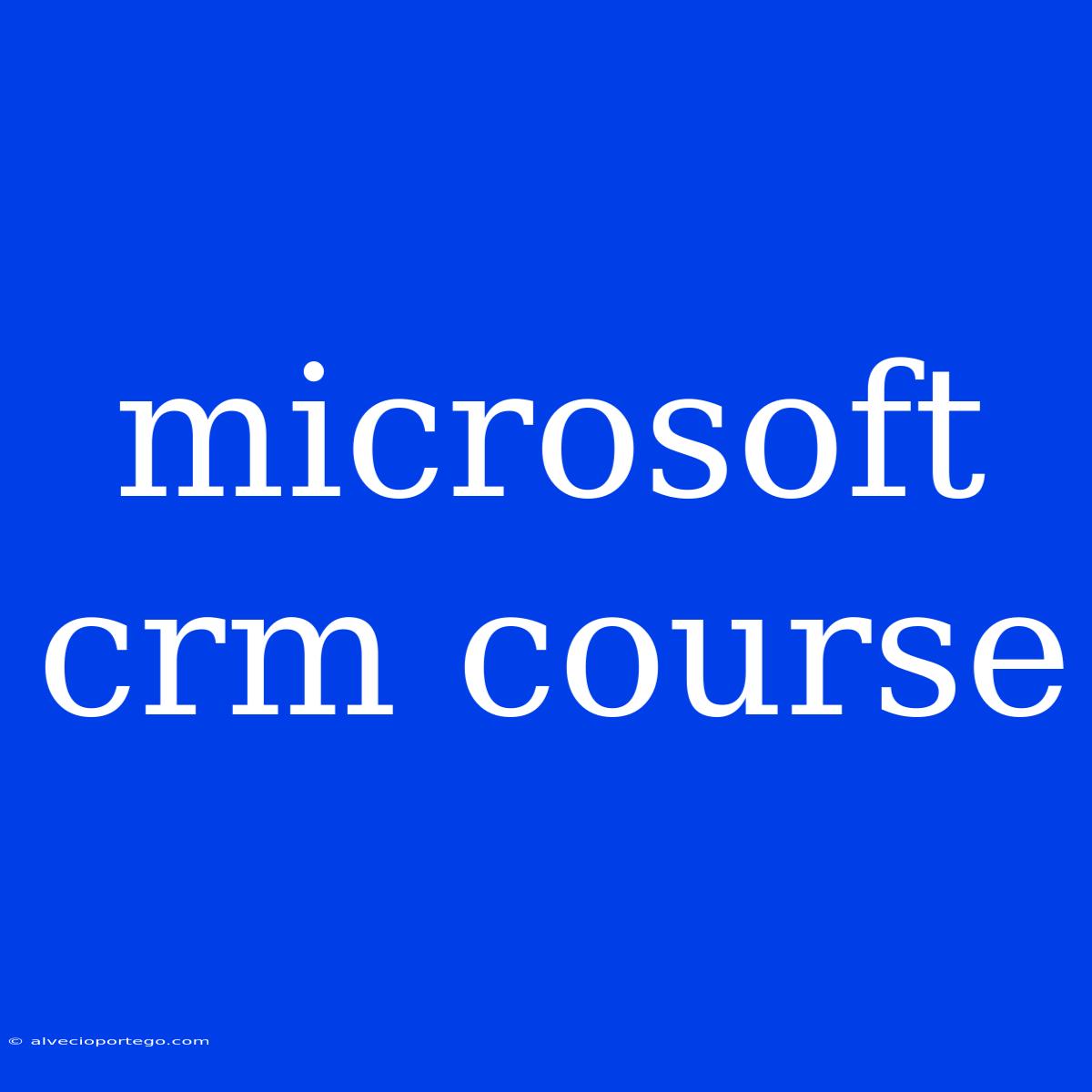Unlock the Power of Microsoft CRM: A Comprehensive Course Guide
Microsoft Dynamics 365, formerly known as Microsoft CRM, is a powerful customer relationship management (CRM) platform designed to streamline and enhance your business operations. Whether you are a seasoned professional or just starting your journey in the CRM world, understanding the fundamentals and advanced features of Microsoft Dynamics 365 can give you a competitive edge.
Why Choose a Microsoft CRM Course?
Investing in a Microsoft CRM course can bring numerous benefits, including:
- Enhanced Productivity: Learn how to effectively manage leads, opportunities, and customer interactions, boosting your sales team's productivity.
- Improved Customer Relationships: Gain insights into customer behavior and preferences, enabling you to provide personalized and engaging experiences.
- Streamlined Business Processes: Automate repetitive tasks, optimize workflows, and streamline communication across departments.
- Data-Driven Decision Making: Access real-time data and analytics to make informed decisions about marketing campaigns, sales strategies, and customer service.
- Career Advancement: Demonstrate your expertise in Microsoft CRM, a highly sought-after skill in today's business world.
What to Expect in a Microsoft CRM Course:
A comprehensive Microsoft CRM course typically covers the following areas:
1. Fundamentals of CRM and Microsoft Dynamics 365:
- Introduction to CRM: Understanding the core concepts and benefits of CRM systems.
- Microsoft Dynamics 365 Overview: Exploring the different modules and functionalities of the platform.
- Setting Up Your Environment: Creating user accounts, configuring security settings, and customizing the interface.
2. Core Modules and Features:
- Sales: Managing leads, opportunities, quotes, and orders.
- Marketing: Creating and executing marketing campaigns, analyzing customer engagement, and managing email marketing.
- Service: Tracking customer support requests, managing service cases, and improving customer satisfaction.
- Field Service: Scheduling and managing field service appointments, optimizing route planning, and automating service processes.
3. Advanced Topics:
- Data Integration: Connecting Microsoft Dynamics 365 with other business systems and applications.
- Workflow Automation: Building automated processes to streamline workflows and improve efficiency.
- Reporting and Analytics: Using data visualization tools to gain insights and make informed business decisions.
- Customizations and Extensions: Tailoring Microsoft Dynamics 365 to meet your specific business needs.
Finding the Right Microsoft CRM Course:
There are various options available for learning Microsoft CRM, including:
- Online Courses: Convenient and flexible, offering self-paced learning opportunities from platforms like Udemy, Coursera, and LinkedIn Learning.
- Instructor-Led Training: Interactive and engaging, providing hands-on experience and personalized guidance from certified instructors.
- Microsoft Official Training: Designed by Microsoft experts, offering comprehensive and accredited courses.
Remember to consider your learning style, budget, and time constraints when selecting a Microsoft CRM course. Look for courses that align with your specific career goals and business needs.
Mastering Microsoft Dynamics 365 can revolutionize your business processes, empower your team, and drive customer satisfaction to new heights. Take the first step towards success by enrolling in a comprehensive Microsoft CRM course today!

